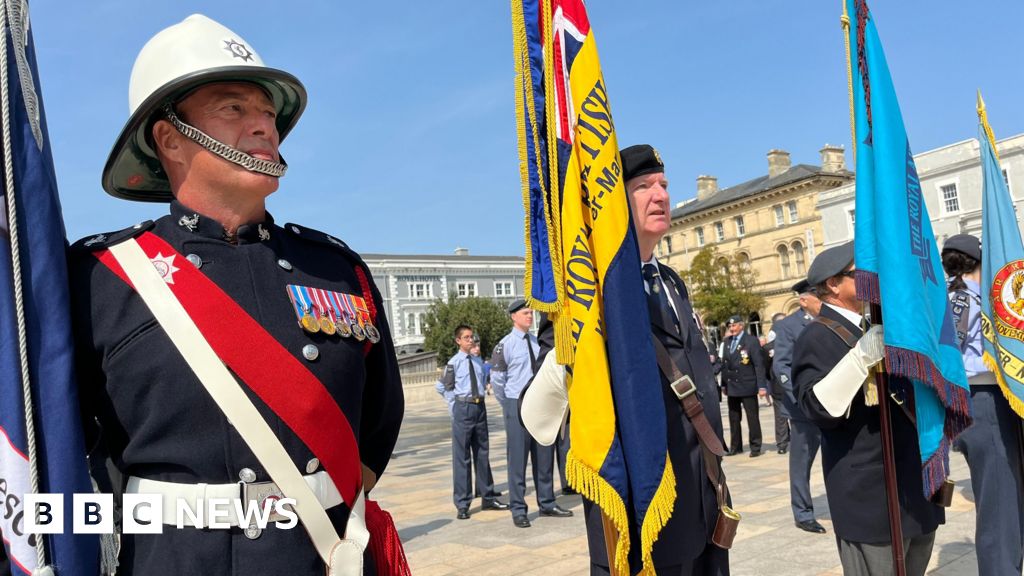BBC News, West of England
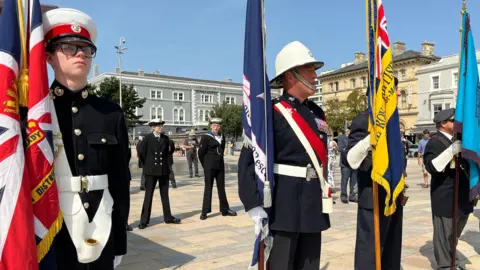 BBC
BBCMemorials have been held across the West to mark the 80th anniversary of VJ Day (Victory over Japan Day) – signifying the end of World War Two.
Crowds took part in a national two-minute silence at 12:00 BST led by the King, Queen and Prime Minister Keir Starmer from the National Memorial Arboretum in Staffordshire.
While VE Day (Victory in Europe Day) was celebrated on 8 May 1945, thousands of military personnel continued to fight Japanese forces for three more months.
Japan’s surrender was ultimately sparked by the United States’ nuclear strikes on Hiroshima and Nagasaki.
In Weston-Super-Mare, Somerset, the day was marked by veterans bearing military banners in the town’s Italian Gardens.
In the Gloucestershire towns of Quedgeley and Cheltenham, crowds gathered at war memorials.
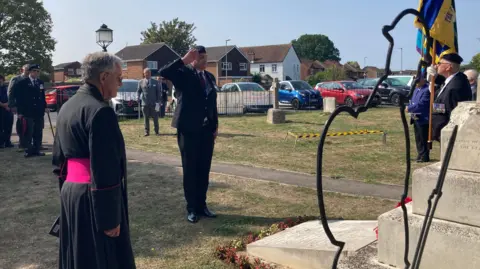
In Marlborough, Wiltshire, council dignitaries invited the public to join them in the silence from the steps of the town hall.
It was preceded by a bugler playing the Last Post and the Kohima Epitaph was spoken from the steps.
Ted Allen, Vice Lord-Lieutenant of Somerset, said: “The war in Asia was almost the forgotten war. So while we celebrated the incredible relief in Europe in May this year it is absolutely right that we celebrate victory in Japan. We should never forget.”
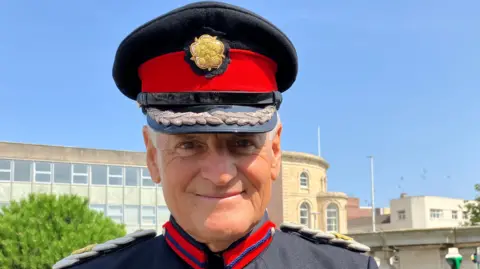
Jane Norris, of the Royal British Legion, was among those who took part in the silence at Victoria Park, in Frome, Somerset.
She said wreaths were laid and Rudyard Kipling’s poem Recessional was read.
“This was a sober, sombre reflection of the atrocities that went on and the endurance of people in the jungle and in the prisoner of war camps, not forgetting those who suffered when two atomic bombs fell,” she said.
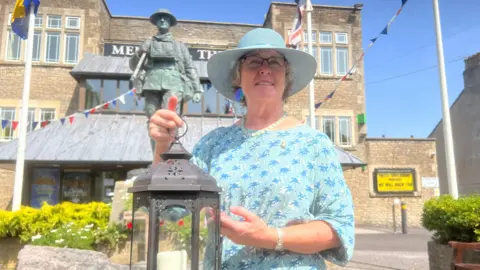
Also at Victoria Park was Gina, who said her father served in Burma, now Myanmar.
While most of the nation was celebrating the end of the war in Europe, her family knew the fighting was ongoing.
“It has to be remembered,” she said.
Timothy Painter, from Marlborough, said his father volunteered in the Navy’s Fleet Air Arm.
“I thought it would be nice to remember him for the service he did during the war and remembering how it affected him very deeply, especially collecting the prisoners of war from Japan,” Mr Painter said.
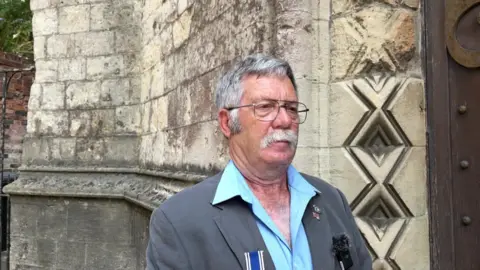
He said his father watched an atomic bomb go off.
“He was in a ship in Japanese waters, so all these things really deeply affected him,” Mr Painter said.
